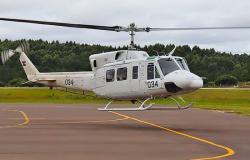Less than a year ago, in June 2023, Ibama agents boarded a vessel in the sea off Santa Catarina in an operation that would go down in Brazilian environmental history. On the ship, inspectors seized 29 tons of shark fins of irregular origin, a quantity that set a new world record for confiscation of this type. The cargo belonged to a company from Itajaí, Kowalsky Pescados, whose owner also carries with him the dishonorable trophy of national champion of illegal fishing — Evaldo Kowalsky has accumulated 28 fines and 32 million reais in environmental fines since 2018. Although representative, the character is another one of the many offenders that made Santa Catarina the champion state of predatory fishing, according to a survey carried out by VEJA based on Ibama records.
The lack of respect for legislation in Santa Catarina is enormous. The state is home to 7% of the Brazilian coastal strip, but accounts for a third of the volume of fines for illegal fishing in the country. During the period researched by the report, people and companies from Santa Catarina were fined 153 million reais for irregular activity, around 34% of the total punishments applied along the entire Brazilian coast, which reached 453 million reais (see the picture). The illegality is so deep-rooted that even the former president of the Shipowners and Fishing Industries Union of Itajaí and Region, Giovani Genázio Monteiro, is in third place in the ranking of fines, with 11.5 million reais. In 2015, he was arrested by the Federal Police, accused of running a vast fraud scheme in the granting of fishing licenses.
Santa Catarina’s leadership in fishing banditry is no coincidence. The fish industry is a strong economic engine in Santa Catarina, which accounts for around 30% of vessels and the largest number of companies in the sector in Brazil, according to the State Executive Secretariat for Aquaculture and Fisheries. The state moved more than 5 billion reais with activity between January and October 2023 — the port of Itajaí handles 55% of the Brazilian market and leads frozen sales in the country.
Continues after advertising
Santa Catarina fishing also has considerable political influence. The state is the base of Jorge Seif Jr., former secretary of Fisheries and Aquaculture in the Jair Bolsonaro government, current PL senator (but at risk of losing his mandate, in an ongoing trial at the TSE for abuse of economic power in the campaign) and owner of a long history in fishing activity. His father, Jorge Seif, is the founder of JS Pescados and has accumulated, with his wife, Sara Kischener Seif, 6 million reais in fines since 2018. The data shows that supervision eased under Bolsonaro, while it was common to see the then president fishing with Seif Jr. in Santa Catarina waters. In 2018, the volume of fines in the country exceeded 146 million reais. With Bolsonaro taking office, it fell by half. In 2020, it dropped to 25 million reais. With Lula, it rose again, to 135.6 million reais. “Two factors were quite detrimental to inspection: the reduction in effective staff and the lack of vessels”, says Igor de Brito, head of the Fisheries Resources Inspection Center (Nupesc), at Ibama.
The crimes include irregularities in licenses, commercialization of banned species and the use of prohibited techniques, such as surface longlines, a device made up of a structure of lines and hooks that focuses on tuna fishing, but attracts large quantities of protected animals, such as turtles.
The species most affected by illegal overfishing vary between regions. Nationally, experts point out that sharks, dogfish and rays are among the most threatened. Other species that suffer from irregular activity are shrimp, lobsters, mullets and sardines. In addition to the disproportionately lethal equipment, the lack of respect for the closed season, the animals’ reproduction period, causes concern. “The disproportionate reduction of a certain population causes imbalance in an entire food chain”, warns Ronaldo Christofoletti, professor at the Unifesp Institute of the Sea and UNESCO representative for the protection of Brazilian oceans. According to him, in addition to strengthening supervision, it is necessary to review the legal framework to consider the ecosystem, more than individual species, and protect the autonomy of communities that explore the sea in a sustainable way.
Illegal fishing is one of the crimes that has caused the most concern, not only for environmental agents, but also for police authorities. Gangs involved in this type of practice have, in some parts of the country, connections with other criminal activities, such as mining and drug trafficking. Illegal fishermen killed indigenous man Bruno Pereira and British journalist Dom Phillips, in June 2022, in Amazonas — third in the ranking of illegal fishing, but well below the southern states. According to inspector Igor de Brito, in the Amazon, the activity occurs at sea and in rivers, in a very widespread manner, which makes it difficult to act when there is a low number of inspectors. In the South, activity is concentrated in certain regions, facilitating the action of agents. The exploration of this type of crime finds calm waters when repression recedes, almost always due to a permissive environmental vision. But the country needs to act firmly, because it is necessary to protect legal economic exploitation and punish those who dirty the waters of this important activity for Brazil.
Published in VEJA on April 26, 2024, issue no. 2890







